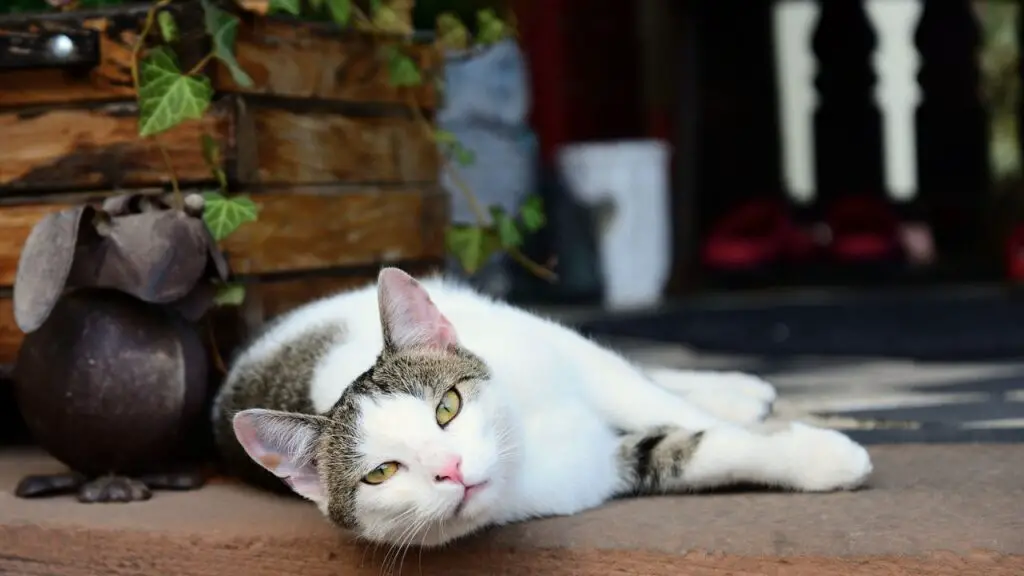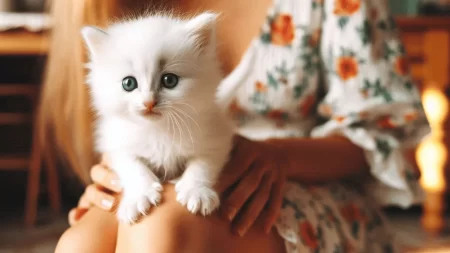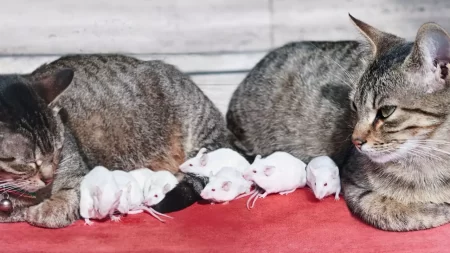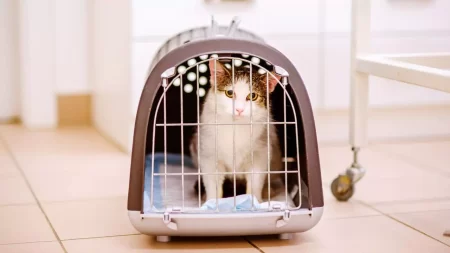A cat sitting on your porch could signify various things. It might indicate the cat’s curiosity, hunger, being lost, or seeking shelter.
Alternatively, it could be seen as a good omen, especially if it happens to be a black cat.
According to some beliefs, cats possess spiritual qualities and can safeguard you against malevolent forces or bring you prosperity.
However, such beliefs are merely superstitions and lack empirical evidence.
Are there any superstitions associated with a cat sitting on your porch?
Yes, there are some superstitions associated with a cat sitting on your porch. Some of them are:
- A cat that saunters toward your front door is good luck, especially if it is a black cat.
- A cat crying outside an ill person’s home means that death is near.
- A cat on your porch can predict a storm or bring you a fortune.
- A cat on your porch can also protect you from evil or ward off sickness.
What does it mean when multiple cats sit on your porch at the same time?
Several cats on your porch simultaneously might signify various things, contingent on the context. Potential interpretations include:
- Cats could be strays in search of food, refuge, or assistance. Hunger, disorientation, or illness might lead them to seek a secure location.
- Curiosity about your home or its contents may attract the cats. Intriguing scents or sounds could draw them in.
- Cats may symbolize good fortune or defense against malevolence. They are sometimes considered spiritual emissaries, with their influence depending on their color or quantity.
Can a cat sitting on your porch bring good luck or bad luck?
The presence of a cat on your porch, its impact on luck, and the significance of its color are all subject to personal beliefs.
For some, a black cat on the porch signals fortune and prosperity, while others associate a white or unfamiliar cat with ill luck and adversity.
These notions lack scientific evidence and differ across cultures and locales.
Are there any cultural beliefs related to cats sitting on porches?
Yes, there are some cultural beliefs related to cats sitting on porches. Some of them are:
- In ancient Egypt, cats were sacred animals and associated with the goddesses Isis and Bastet. Cats were mummified and buried with respect, and killing a cat was forbidden.
- In Scotland and northern England, finding a black cat at your door in the morning was a sign of approaching good fortune, especially in money. This was related to the sailors’ wives who kept black cats for their husbands’ safety at sea.
- In Japan, cats are seen as lucky and bringers of fortune. The Maneki-Neko or beckoning cat is a popular symbol of good luck and prosperity.
- In some parts of Europe, cats were seen as evil and associated with witchcraft and the devil. Black cats crossing your path were considered bad luck or an omen of death.
- In some cultures, cats are seen as spiritual messengers or divine guides. They may appear to deliver a message from the spirit world or protect you from harm.
What do you do if a cat refuses to leave your porch?
When a cat persists on your porch, consider various options based on circumstances:
- If the cat appeals to you and you wish to keep it, entice it indoors using food or toys. Examine a collar or microchip to identify ownership. If absent, a vet visit for a health assessment and vaccinations is advisable. Spaying or neutering the cat is crucial to avoid surplus kittens.
- If the cat is unwelcome and you want it to depart, attempt to frighten it with loud sounds or water sprays. Eliminate food or shelter sources that may draw the cat to your porch. Deterrents like citrus peels, coffee grounds, or vinegar may help keep the cat from returning.
- If concern for the cat’s well-being prompts you to assist, reach out to a nearby animal shelter or rescue group. They could trap the cat and locate a new home or reunite it with its owner if lost. Offering to foster the cat until a lasting solution emerges is another option.
What if A Cat Makes a Sound on Porch?
Cat sounds on your porch can indicate various things based on the sound and its tone:
- A meow, a common cat communication with humans, might imply the cat desires food, attention, or entry to your home.
- A purr, made by content cats, suggests the cat appreciates your presence or your porch.
- A yowl, a loud and lengthy sound, signals the cat is in distress, pain, or heat, possibly lost, hurt, or seeking a mate.
- A growl, a low and menacing sound, conveys the cat is upset, frightened, or defensive, potentially warning others to avoid its territory.
- A hiss, a sharp and piercing sound, indicates a scared, annoyed, or aggressive cat, ready to attack or escape a perceived threat.
- A chirp, a brief and high-pitched sound, reveals an excited, curious, or playful cat, possibly observing something captivating on your porch, like a bird or an insect.







